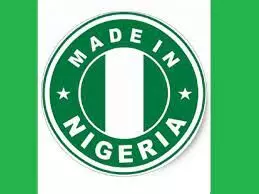- Home
- /
- Trending-News
- /
- Patronise...
Patronise made-in-Nigeria goods, ESMEDA DG tells Nigerians

Dr. Stephen Odoh, Director-General of the Ebonyi Small and Medium Enterprise Development Agency (ESMEDA), said the consumption of made-in-Nigeria goods and services would boost the country’s economy and generate employment.
Odoh stated this at a meeting on the impact of fuel subsidy removal and related social intervention programmes and the People's Charter of Needs by the Ebonyi government.
The event, which was held on Thursday in Abakaliki, was organised by the Nigeria Civil Society Situation Room (ECSSR) in partnership with the Development Integrity Intervention Goals (DIIG) Foundation.
The DG, who applauded President Bola Tinubu’s administration for having the political will to remove petrol subsidies, said that it was the best way to go.
He argued that Nigeria had no reason to introduce a fuel subsidy if the product that is being produced in the country is being refined within the country.
“I’m one of those who believe that fuel subsidies should be removed and that there should not be an issue of fuel subsidies as a discourse in Nigeria if the right thing is done.
“My concern as a development economist is that development is driven by production and that until we begin to patronise locally-made goods and services to encourage local production, we may never achieve the desired socio-economic development as a nation,” Odoh said.
He observed that the best way to address the current economic hardship was for the government and people to embrace the consumption of locally-made products.
According to him, economic growth and development could only be achieved through the production of goods and services, saying that efforts must be made to encourage local manufacturers.
He called for support for the local content policy to boost the country’s economy, generate foreign exchange, and enhance the country’s gross domestic product (GDP).
On the programmes being implemented by the state government under Gov. Francis Nwifuru to mitigate the negative impact of the subsidy removal, the DG said that the state government had started the payment of the backlog of gratuities owed to retired civil servants in the state.
Odoh, a former Ebonyi commissioner for Commerce and Industry, emphasised that the government’s subsidy removal social intervention programme (SIP) was aimed at helping the poor and vulnerable citizens overcome the economic pang brought by fuel subsidy removal.
He added that the state government had commenced the payment of N2 million as palliatives to each Ebonyi indigene living outside the state engaged in petty trading and hawking to uplift their small businesses.
“If we are to assess the state government in the area of post-subsidy removal intervention programmes, I’ll give it a pass mark.
“Governance is all about the people, and government programmes and activities are considered reasonable if they are targeted to benefit the greater majority.
“Everything about the ‘People’s Charter of Needs', which is the anchor of the programme of this government, is all about the welfare of the citizens.
“We are encouraging the development of SMEs in Ebonyi because that is the best way to encourage local production and ultimately grow the economy,” he added.
Earlier, Chief Oliver Aja, the Executive Director of DIIG Foundation, in his address, commended participants for attending the roundtable discussion.
He said that the NCSSR, in partnership with the DIIG foundation and with support from the UK Foreign, Commonwealth and Development Office (FCDO), is implementing a project titled ‘Strategic Civic Education and Advocacy for Accountability and Good Governance in Ebonyi.’
He said the project was aimed at empowering young people, in particular, and communities at large, with tools and knowledge for understanding governance, democracy, and active citizenry.
He added that the whole essence was to rebuild citizens’ confidence in governance, promote accountability, and foster positive citizen-government relations.
Supreme News reports that the workshop was attended by members of civil society organisations, traditional rulers, government officials, people with disabilities, and the media, among others.



